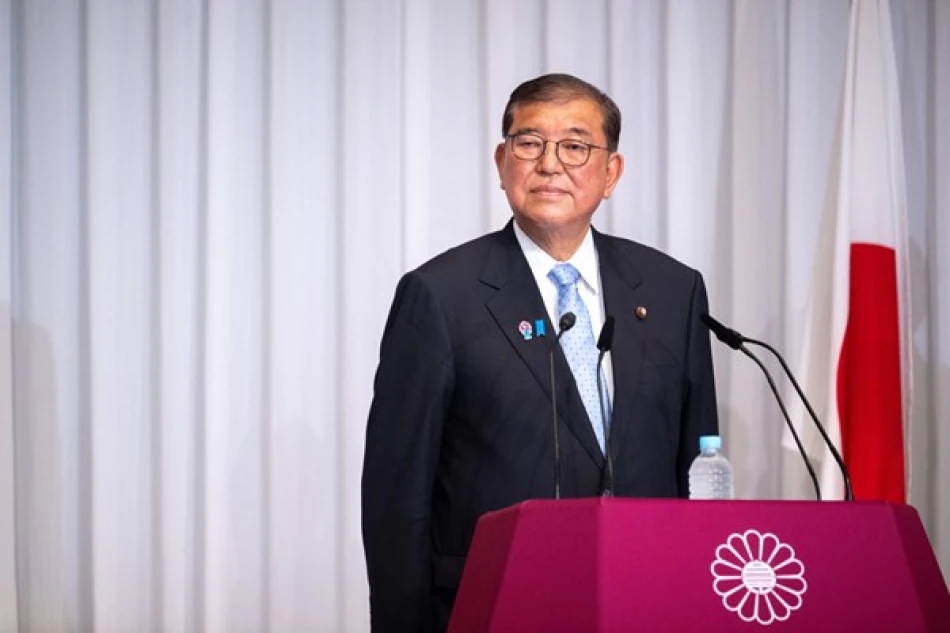
Japanese PM Resigns After Election Defeat, Shaking Up Political Landscape
Japan's Political Crisis Deepens as PM Ishiba Signals Resignation Following Coalition Collapse
Japanese Prime Minister Shigeru Ishiba is reportedly preparing to announce his resignation after a devastating electoral defeat left his ruling coalition without a majority in the upper house of parliament. The timing, coinciding with a new US-Japan trade agreement, underscores the political instability gripping one of Asia's largest economies at a critical moment for regional leadership.
Electoral Setback Triggers Leadership Crisis
According to local media reports, Ishiba has informed close associates of his intention to step down following the coalition's failure to secure a parliamentary majority. The electoral defeat represents more than just a political loss—it signals a fundamental shift in Japan's political landscape that could reshape the country's domestic and international priorities.
The loss of the upper house majority effectively paralyzes the government's ability to pass significant legislation, creating a power vacuum at a time when Japan faces mounting economic and security challenges. This political gridlock comes as the country grapples with an aging population, sluggish economic growth, and increasing regional tensions with China and North Korea.
Strategic Implications for US-Japan Relations
The timing of Ishiba's expected resignation is particularly significant, coming just as Japan and the United States announced a new trade agreement. This juxtaposition highlights the challenges facing Japan's foreign policy establishment as it navigates complex relationships with its primary security ally while managing domestic political turmoil.
Economic Policy Uncertainty
For international investors and trading partners, Japan's political instability raises questions about policy continuity. The country's approach to key economic issues—including monetary policy coordination with the Bank of Japan, fiscal stimulus measures, and trade negotiations—now faces potential disruption during the leadership transition.
Japan's experience mirrors political upheavals seen in other major economies, but unlike the more frequent government changes in European parliamentary systems, Japan's political stability has traditionally been a cornerstone of its economic policy framework.
Regional Power Dynamics at Play
The political crisis comes at a particularly sensitive time for East Asian geopolitics. As China continues to assert its influence in the region and North Korea maintains its provocative stance, Japan's leadership vacuum could complicate coordinated responses among democratic allies.
Unlike Singapore's more centralized decision-making system or South Korea's presidential structure, Japan's parliamentary system requires broad coalition support for major policy initiatives. The current political fragmentation could delay critical decisions on defense spending, regional security cooperation, and economic partnerships.
Market and Investor Outlook
Japanese financial markets have historically shown resilience during political transitions, but the current situation presents unique challenges. The combination of domestic political uncertainty and global economic headwinds creates a complex environment for both domestic and international investors.
The leadership change process itself could take weeks or months, during which major policy decisions may be postponed. This uncertainty particularly affects sectors dependent on government policy direction, including infrastructure, defense, and renewable energy industries.
What Comes Next
Japan's political system allows for relatively swift leadership transitions within the ruling party, but the underlying electoral mathematics suggest deeper challenges ahead. Any new prime minister will face the same parliamentary arithmetic that brought down Ishiba's government, potentially leading to either significant policy compromises or early elections.
The situation demonstrates how even stable democracies can face governance challenges when electoral outcomes fragment traditional power structures. Japan's experience may serve as a case study for other developed nations grappling with similar political fragmentation trends.
Most Viewed News

 Layla Al Mansoori
Layla Al Mansoori






